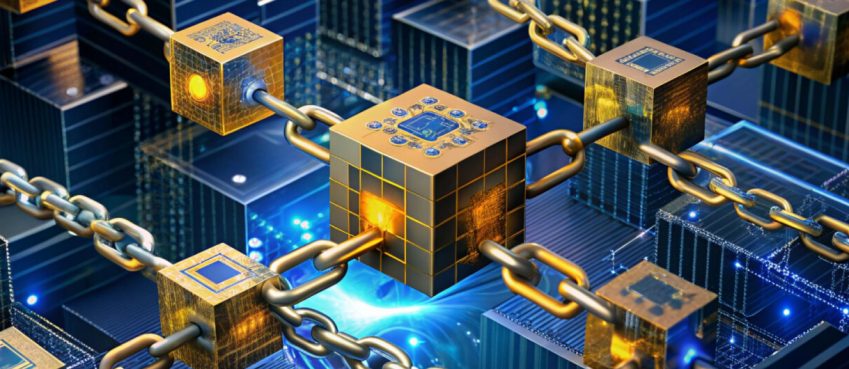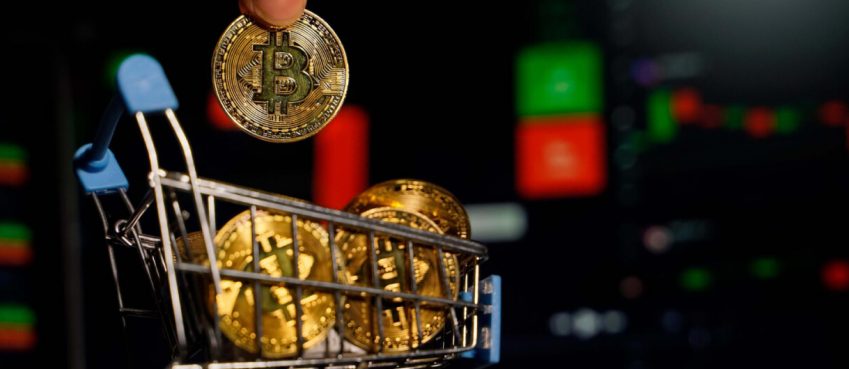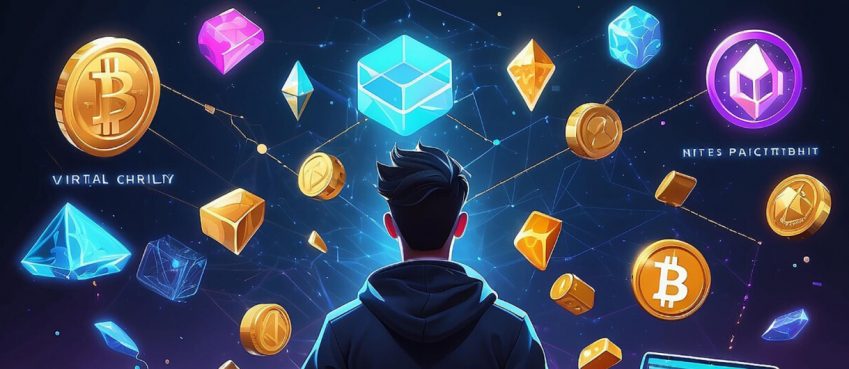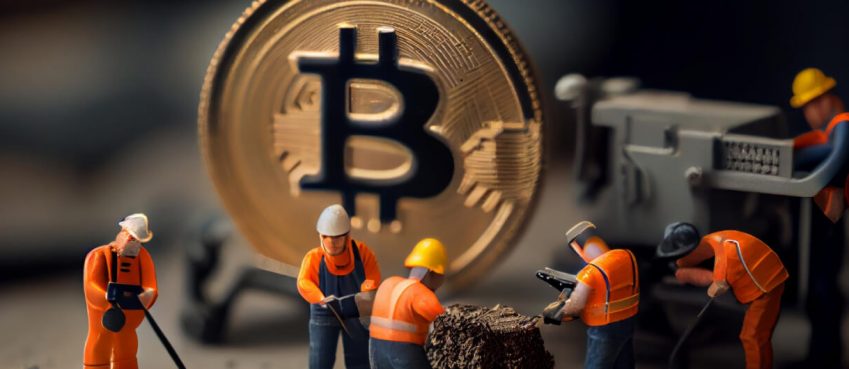
Blockchain technology is a relatively new concept that has the potential to revolutionize the way we play and monetize games. Let’s discover more.
What is Blockchain?
Blockchain is a decentralized and transparent digital ledger that records transactions across a network of computers. These transactions can include the exchange of digital assets, such as cryptocurrency, or the recording of information, such as contracts or agreements. Once a block of transactions is recorded, it is added to a chain of previous blocks, creating a permanent, unchangeable record of all transactions on the network.
Blockchain technology has many applications, including the creation of a decentralized and transparent ecosystem for games, which allows players to truly own and trade unique digital assets.
Additionally, blockchain technology allows for the creation of provably fair games and decentralized, player-run economies, as well as the use of cryptocurrency for quick, secure, and low-cost transactions.
How is Blockchain Revolutionizing The Gaming Industry?
1) Ownership and In-Game Assets
In traditional, non-blockchain-based games, in-game assets are typically owned and controlled by the game developer or publisher. Players may have access to these assets, but they don’t truly own them and cannot transfer them outside of the game.
In contrast, blockchain-based games use non-fungible tokens (NFTs) to represent in-game assets, which are stored on the blockchain. These assets can be bought, sold, and traded just like physical items, allowing players to truly own and control their in-game assets.
Also read: Top 10 Internet Providers In The World | List Of Fastest ISP Providers2) Provably Fair Games
Traditional game players have to rely on the game developer or publisher to ensure that the game is fair and that the results of the game are not rigged. However, in blockchain-based games, players can use smart contracts to verify the fairness of the game.
Smart contracts are self-executing contracts with the terms of the agreement between buyer and seller being directly written into lines of code, which allows players to ensure that the game is fair and not rigged in favor of the house. This can also lead to increased trust in the game, and ultimately, increased player engagement.
3) Decentralized, Player-Run Economies
One of the key benefits of blockchain in gaming is its ability to create a decentralized and transparent ecosystem. This allows players to own and trade in-game assets, such as virtual currency, items, and collectibles, without the need for a centralized intermediary. This has led to the creation of new business models, such as NFTs stored on the blockchain.
Furthermore, it allows for a more dynamic and immersive gaming experience, as well as the potential for players to earn real-world income through their in-game activities. This is particularly powerful for games with virtual goods, and it allows players to cash out their assets and earn real money, instead of just enjoying them within the game.
4) Interoperability and Cross-Game Play
In traditional games, players are often locked into a specific game or platform and their in-game assets cannot be used or transferred to other games or platforms.
In contrast, blockchain-based games allow players to take their in-game assets with them across different games and platforms. This is because the assets are stored on the blockchain and can be transferred to other games or platforms that also use blockchain technology.
This interoperability allows players to build a collection of in-game assets that they can use across different blockchain games, which can increase player engagement and retention.
5) Cryptocurrency in Gaming
Another way in which blockchain is changing the way we play and monetize games is through the use of cryptocurrency. In traditional games, players can earn in-game currency, but it can only be used within the game. In the blockchain, however, players can earn cryptocurrency, which can be withdrawn or used to purchase items in other games or platforms.
What this does is it allows for quick, secure, and low-cost transactions, making it easier for players to make purchases and for game developers to receive payments. This is also particularly useful for microtransactions in games, which can be expensive and time-consuming to process with traditional methods.
Also read: Walmart Eye Center Review: Is It Worth The Money?6) Increased Privacy
In traditional video games, players’ personal information like their names, emails, date of birth, and especially location are often shared with the game developer or publisher.
In contrast, blockchain games offer more privacy to players and allow players to remain anonymous and maintain control over their personal information. This can be especially important for players in countries where gaming is heavily regulated or where online privacy is a concern.
Examples of Successful Blockchain Games
There are already several games based on the blockchain that have made a significant impact on the gaming industry. These games have been successful in attracting a large number of players and generating significant sales of in-game items. The success of these games indicates the potential of blockchain technology to change the way we play and monetize games.
1) CryptoKitties
CryptoKitties is a blockchain-based game that allows players to collect, breed, and sell virtual cats in the form of NFTs. The game quickly became one of the most popular blockchain-based games out there, and it generated more than $40 million in sales in its first year.
2) 0xUniverse
0xUniverse is a game that allows players to explore, colonize and build on a virtual galaxy. Players can own, trade, and build on planets represented by NFTs, and discover and explore new planets, resources, and aliens. The game is built on the Ethereum blockchain, and it has been successful in attracting a large number of players and generating significant sales of in-game items.
3) Gods Unchained
Gods Unchained is a blockchain-based card game that allows players to collect, trade, and own unique digital cards. The game utilizes NFTs to represent each card, and players can use them to participate in various in-game activities. The game also has a tournament system that allows players to earn cryptocurrency by participating.
Also read: DDR4 vs DDR5: Tech Differences, Latency Details, Benefits & More (A Complete Guide)4) Axie Infinity
Axie Infinity is a blockchain-based game that allows players to breed, raise, and battle fantasy creatures called Axies. The game uses a combination of NFTs to allow players to truly own and trade their in-game assets.
Players can also use their Axies to earn cryptocurrency by participating in battles and other activities. The game has been very successful, with a strong community of players and a thriving in-game economy.
Conclusion
In conclusion, blockchain technology has massive potential to revolutionize the way we play and monetize games. It already has changed a lot but there is more to be seen.
As technology continues to evolve and mature, we can expect to see more and more games utilizing blockchain in the future. This is particularly exciting for players who want to truly own and trade unique digital assets, and for game developers who want to create dynamic and immersive gaming experiences.
Top 10 News
-
01
Top 10 Deep Learning Multimodal Models & Their Uses
Tuesday August 12, 2025
-
02
10 Google AI Mode Facts That Every SEOs Should Know (And Wha...
Friday July 4, 2025
-
03
Top 10 visionOS 26 Features & Announcement (With Video)
Thursday June 12, 2025
-
04
Top 10 Veo 3 AI Video Generators in 2025 (Compared & Te...
Tuesday June 10, 2025
-
05
Top 10 AI GPUs That Can Increase Work Productivity By 30% (W...
Wednesday May 28, 2025
-
06
[10 BEST] AI Influencer Generator Apps Trending Right Now
Monday March 17, 2025
-
07
The 10 Best Companies Providing Electric Fencing For Busines...
Tuesday March 11, 2025
-
08
Top 10 Social Security Fairness Act Benefits In 2025
Wednesday March 5, 2025
-
09
Top 10 AI Infrastructure Companies In The World
Tuesday February 11, 2025
-
10
What Are Top 10 Blood Thinners To Minimize Heart Disease?
Wednesday January 22, 2025







